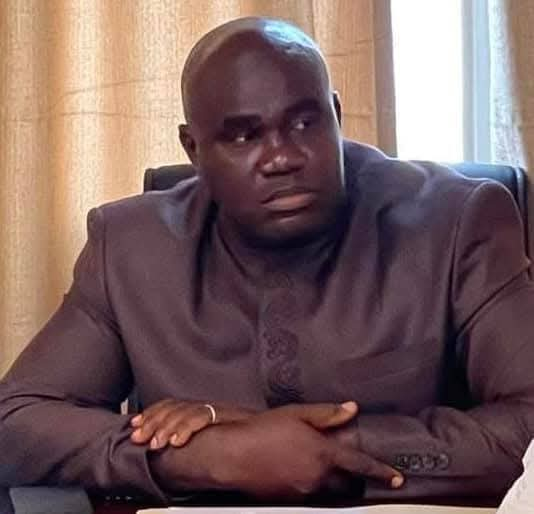The political landscape of Grand Cape Mount County, Liberia, is embroiled in controversy as Senator Simeon Taylor faces accusations of assault, disorderly conduct, and criminal coercion. Lina Hawa Magona, the wife of Senator Taylor’s Chief of Staff, has brought these allegations forward, claiming the Senator attempted to sexually assault her at his residence in Brewerville, subsequently ordering his security personnel to physically assault and publicly humiliate her. The incident, as detailed by Magona, allegedly stemmed from a confrontation initiated by her to address what she describes as years of mistreatment by the Senator. The accusations paint a picture of a volatile encounter, with Magona claiming the Senator used degrading language and threatened her life.
The impending court hearing, scheduled for January 22, 2025, at the Brewerville Magisterial Court, promises to be a focal point of public attention. Magona seeks justice for what she alleges to be severe physical and emotional trauma resulting from the incident, while Senator Taylor vehemently denies all allegations, framing them as politically motivated attacks intended to tarnish his reputation. He claims that Magona has a history of disrespectful behavior towards him, which he previously dismissed as jest, but now believes is being exploited by his political adversaries. The Senator’s recent suspension of Magona’s husband, his Chief of Staff, further complicates the narrative, adding another layer of complexity to the already strained relationship between the parties involved.
The Senator’s defense rests on the assertion that the accusations are a calculated smear campaign designed to undermine his political standing. He portrays Magona’s claims as a fabrication, strategically timed to inflict maximum damage to his career. The timing of the allegations, in close proximity to potential political maneuvering, lends credence to his claims of political motivation, although it does not negate the possibility of the alleged assault. The Senator maintains his innocence, expressing confidence that the judicial process will exonerate him and reveal the truth behind the accusations. He portrays himself as the victim of a calculated attack, highlighting the potential damage to his reputation and career.
Magona, on the other hand, seeks redress for the alleged assault and the subsequent public humiliation she claims to have endured. Her account depicts a pattern of abuse culminating in the alleged assault at the Senator’s residence. Her decision to come forward with these allegations, despite the potential personal and social repercussions, underscores the gravity of the situation and her determination to seek justice. Her narrative emphasizes the emotional distress and physical harm she alleges to have suffered, painting a picture of vulnerability and victimization.
The case has ignited public debate, dividing opinions between those who demand a thorough and impartial investigation to ensure accountability and those who question the veracity and timing of the accusations. The public discourse reflects the deep polarization often accompanying such high-profile cases, with both sides drawing their own conclusions based on the available information and personal biases. The case highlights the complexities of navigating accusations of this nature, particularly when they involve prominent figures and occur within a charged political environment.
As the legal proceedings unfold, the case is expected to draw significant public scrutiny, potentially impacting both Senator Taylor’s political trajectory and Magona’s pursuit of justice. The outcome will undoubtedly have far-reaching consequences, shaping public perception and potentially influencing future legal and political discourse. The case serves as a stark reminder of the importance of due process and the need for a fair and impartial judicial system to adjudicate such sensitive matters. The court’s decision will ultimately determine the legal ramifications for both parties, while the broader societal impact will likely extend beyond the immediate legal outcome, influencing discussions about power dynamics, gender relations, and political accountability within Liberia.














